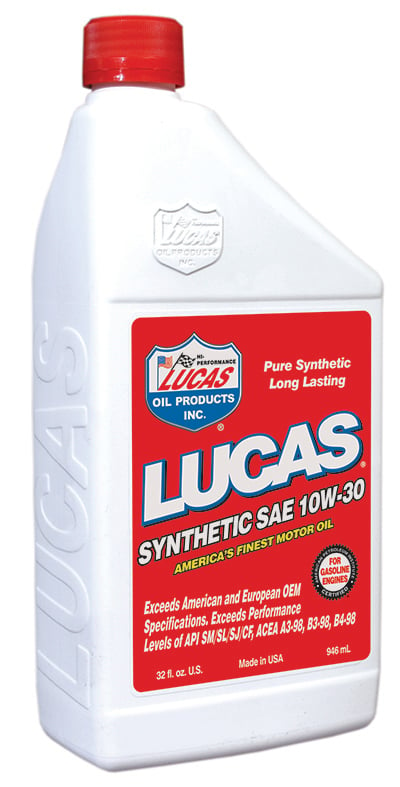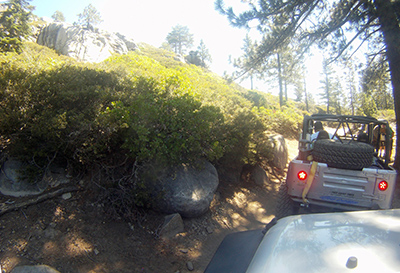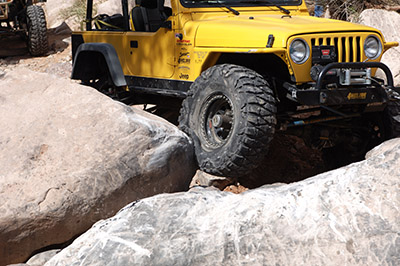Optimize Jeep Performance with Proper Maintenance
Optimize Jeep Performance with Proper Maintenance
Help Your Jeep Live Longer, Play Harder and Be Safer
In this Article
Maintenance on any vehicle can be a real hassle, whether it’s an off-roader, a daily driver or both. New Jeep tires are pricey, fluid changes are easy to forget about and brake checks may require a much-dreaded trip to the mechanic.
As much of a pain as proper maintenance is, though, not maintaining your Jeep properly means a lot more expense and difficulty in the long run. A tire blowing out at 65 mph on a busy highway or a transmission overheating and leaving the Jeep stranded on the trail is many levels worse than keeping on top of your vehicle’s needs.
The most important aspect of maintenance is not increasing your Jeep’s life span or insuring it runs smoothly (though it will do those things) – it’s safety. The average stock Jeep Wrangler weighs over 4,000 pounds empty. Add passengers, gasoline and specialty parts into the mix and it’s at least 5,000 pounds of intricate moving parts, combustible liquids and potential human error hurtling down the highway at 65 mph or crawling down a mountainside.Pay special attention to maintaining these three aspects of your Jeep and you will help it live longer, run better, play harder and keep you and those around you safer.
Tires
Jeep tires are put through a lot, especially off road. They constantly hold the entire weight of the vehicle and battle friction and the elements to keep you on the road. Too much wear and tear on your tires can result in a nasty situation if they blow out or even just go flat. When maintaining your tires, be on the lookout for tire inflation, condition and wear.
It is important to rotate your tires in accordance with your Jeep owner’s manual. As a rule of thumb, expect to rotate your tires every other oil change. The front tires bear more burden than the rear, as they hold much of the weight of the engine and take the majority of the trauma of braking, so rotating your tires makes sure they wear evenly and traction remains consistent.
Another thing to keep an eye on is your tire pressure –remember to immediately air back up after airing down for a trail run. Make sure your tires are in good condition, without any cracking, dry rot or other damage which occurs over time. Finally, keep an eye on tire wear, as not only can it create a dangerous situation if you lose traction, but it can also be a good indicator of any mechanical or alignment problems with your Jeep.
Do these things and your tires will live longer and serve you better. Eventually, you will need to get new ones when they become too worn down, but proper maintenance can help tires last much longer.
Fluids
Jeeps are thirsty beasts. They require a number of fluids to keep all of their systems running and without them, not even the engine could function for more than a couple of minutes. Using high quality fluids and keeping them topped off and fresh increases your Jeep’s life span and insures your rig won’t run dry and sputter to a stop 20 miles into no man’s land (or on your commute to work when you’re running late to a horribly important meeting).
It is important to keep tabs on your oil, brake fluid, transmission fluid, coolant, differential fluid and power steering fluid. The owner’s manual should have a good maintenance schedule for all of them.
Keep in mind that, if you off-road, your Jeep’s fluid levels will need to be checked and changed with much more frequency. It’s a quick process which will save you a lot of trouble in the long run.
Brakes
You know that scene in movies where a character gets onto a bike or straps on a pair of roller blades only to comically realize too late that they do not know how to stop? Those scenes usually end with a good laugh and maybe a bruised shin, but your Jeep is less forgiving than those roller blades.
Your brakes need to be properly maintained to insure that when you need them, they will be there. This includes regular inspection of your brake pads and shoes, brake fluid and brake hoses. Your owner’s manual should have a good schedule for checking all of those, but on average Chrysler suggests you:
- Inspect your brake hoses and pads each time you change your oil
- Replace your brake pads if they have less than the manufacturer’s specified minimum thickness remaining
- Check your brake fluid each time you change your oil and replace it if it’s dirty
- Bleed the air from your brake fluid each time you inspect your brakes
Of course, what you use your Jeep for and your individual driving style will influence how frequently you need to give your brakes a good once-over.
The bottom line is that proper vehicle maintenance is vital to your safety and your Jeep’s health. Take care of your Jeep and it will take care of you.

Join our mailing list to receive information on new products, special events, discounts and more!
Sign up to receive deals by email!
Sign up to receive text alerts about new product releases, exclusive access to sales, and much more!
Sign up to receive deals by text!
By submitting, you agree to receive recurring autodialed marketing text msgs (e.g. cart reminders) to the mobile number used at opt-in from 4 Wheel Parts (4WP) on 21208. Consent is not a condition of purchase. Msg frequency may vary. Msg & data rates may apply. Reply HELP for help and STOP to cancel. See Terms and Conditions & Privacy Policy









